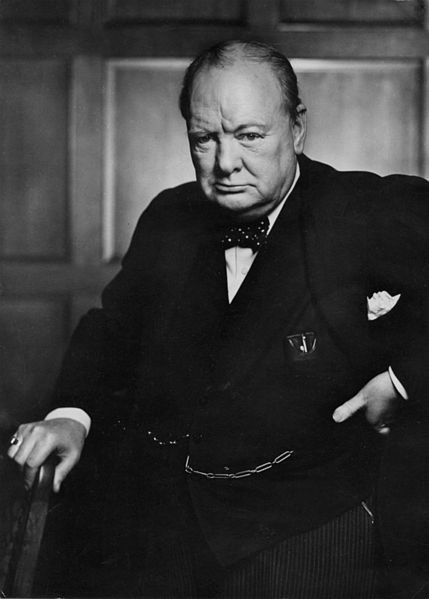 Winston Churchill was born November 30, 1874. He tops most lists of the twentieth century’s greatest leaders, the consummate man of word and action. From May 1940 to America’s December 1941 entry into World War II, Churchill’s leadership rallied Britain against Nazi domination. Of all the countries of northern Europe, only Britain stood between Hitler and freedom.
Winston Churchill was born November 30, 1874. He tops most lists of the twentieth century’s greatest leaders, the consummate man of word and action. From May 1940 to America’s December 1941 entry into World War II, Churchill’s leadership rallied Britain against Nazi domination. Of all the countries of northern Europe, only Britain stood between Hitler and freedom.
It’s hard to imagine England resisting Germany’s onslaught without Churchill. British resistance was not a given. Other options were available, and many favored a negotiated peace. For readers wanting to become familiar with Churchill’s life but unable to invest the time it takes to read a lengthy biography, I recommend Winston Churchill: A Life by the late military historian John Keegan. This brief biography comes in at under 200 pages, but is full of insights into Churchill’s life and character. His was a life that combined physical and moral courage with leadership and oratorical gifts that persuaded a nation to fight.
Keegan writes:
“Ed Murrow [an American broadcast journalist] reflected that one of Churchill’s greatest achievements as wartime prime minister was to have ‘mobilized the English language and sent it into battle.’ . . .
“Churchill’s words did not only touch his people’s hearts and move the emotions of their future American allies; they also set the moral climate of the war. Hitler, a mob orator, spoke little after 1939. When he did so, it was to utter threats and insults, glorifying aggression, deriding his enemies. Churchill, by contrast, avoided threats, condemned few (though Mussolini, for some reason always provoked him to contempt). Instead he appealed to a commonality and nobility of sentiment that took liberty as its ideal and humanity as its spirit. He always spoke, moreover, as if the ideal of liberty, though particularly incarnate in wartime Britain, was shared by all who did not actively oppose it, in this way reaching out to embrace as allies, actual or potential, all those not on Hitler’s side. Thus, in a broadcast on June 12, 1941, he sent out a
‘message . . . to all the States or nations bound or free, to all the men in all the lands who care for freedom’s cause, to our allies and well-wishers in Europe to our American friends and helpers drawing ever closer in their might across the ocean: this is the message – Lift up your hearts. All will come right. Out of the depths of sorrow and sacrifice will be born again the glory of mankind.’
“Churchill’s message triumphed. It was perhaps the greatest of all his achievements. In 1940 his words captured the hearts of his people. In 1941, and in the years that followed, his words drowned out the drumbeat of totalitarianism that had dominated the airwaves of the dictator years, revived belief in democracy among the downtrodden, inspired a new patriotism in the defeated, created a new confidence, and transmitted a promise of victory that was believed. Morally, Churchill set the agenda of the Second World War.” (144-145)
Click here to listen to Churchill’s speeches. His poise, confidence, realism, and hope, along with an unsurpassed facility with the English language, make these audio recording one of history’s valuable treasures.